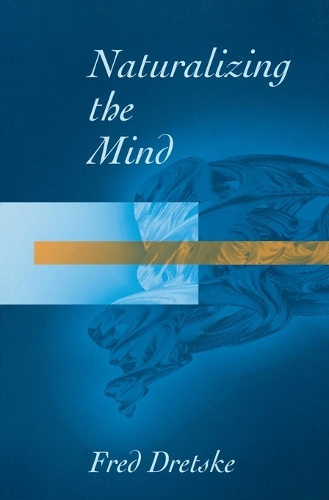
Naturalizing The Mind
(Paperback)
Publishing Details
Naturalizing The Mind
By (Author) Fred Dretske
Edited by Tom Roeper
MIT Press Ltd
MIT Press
21st August 1997
United States
Classifications
Tertiary Education
Non Fiction
Philosophy of mind
Cognition and cognitive psychology
128.2
Physical Properties
Paperback
224
Width 132mm, Height 201mm, Spine 13mm
295g
Description
How can the baffling problems of phenomenal experience be accounted for In this discourse Fred Dretske argues that to achieve an understanding of the mind it is not enough to understand the biological machinery by means of which the mind does its job. One must understand what the mind's job is and how this task can be performed by a physical system - the nervous system. "Naturalizing the Mind" represents theory of the qualitative, the phenomenal, the what-it-is-like aspects of the mind that have defied traditional forms of naturalism. Central to Dretske's approach is the claim that the phenomenal aspects of perceptual experiences are one and the same as external, real world properties that experience represents objects as having. Combined with an evolutionary account of sensory representation, the result is a completely naturalistic account of phenomenal consciousness. Dretske's theory of naturalistic representationalism is an approach to the study of consciousness that can pin down the slippery first-person aspect of our sensory and affective life. It distinguishes, in wholly naturalistic terms, between what we experience (reality) and how we experience it (appearance). The theory establishes a framework within which subjectivity can be studied objectively, explains the peculiar authority we enjoy about our own mental states, and provides a biologically plausible answer to questions about the function or purpose of consciousness. In the first four chapters (the original Jean Nicod Lectures), Dretske focuses on what naturalistic representationalism reveals about introspective knowledge, intentionality, qualia, inverted spectra, the biological function of conscious experience, and the possibility of knowing what alien experiences are like. Chapter five addresses anticipated philosophical objections to the theory.
Author Bio
Fred Dretske is Senior Research Scholar in the Department of Philosophy, Duke University.
